
Sir Anthony Hope Hawkins, better known as Anthony Hope, was a British novelist and playwright. He was a prolific writer, especially of adventure novels but he is remembered predominantly for only two books: The Prisoner of Zenda (1894) and its sequel Rupert of Hentzau (1898). These works, "minor classics" of English literature, are set in the contemporaneous fictional country of Ruritania and spawned the genre known as Ruritanian romance, books set in fictional European locales similar to the novels. Zenda has inspired many adaptations, most notably the 1937 Hollywood movie of the same name and the 1952 version.

Frederic Harrison was a British jurist and historian.
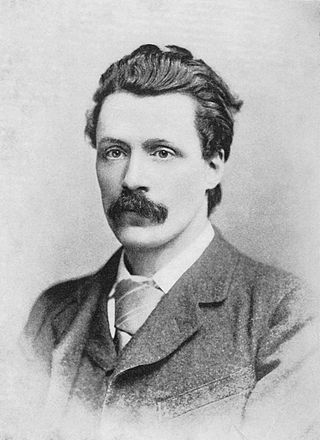
George Robert Gissing was an English novelist, who published 23 novels between 1880 and 1903. In the 1890s he was considered one of the three greatest novelists in England, and by the 1940s he had been recognised as a literary genius. Gissing's best-known works have reappeared in modern editions. They include The Nether World (1889), New Grub Street (1891) and The Odd Women (1893). He retains a small but devoted group of followers.
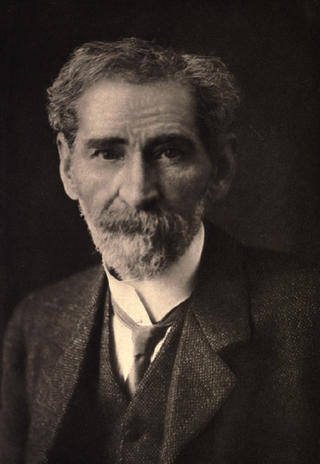
William Henry Hudson, known in Argentina as Guillermo Enrique Hudson, was an Anglo-Argentine author, naturalist and ornithologist.
Clara Collet was a British economist and civil servant. She was one of the first women graduates from the University of London and was pivotal in many reforms which greatly improved working conditions and pay for women during the early part of the twentieth century. She is also noted for the collection of statistical and descriptive evidence on the life of working women and poor people in London and elsewhere in England.

Sir Walter Besant was an English novelist and historian. William Henry Besant was his brother, and another brother, Frank, was the husband of Annie Besant.
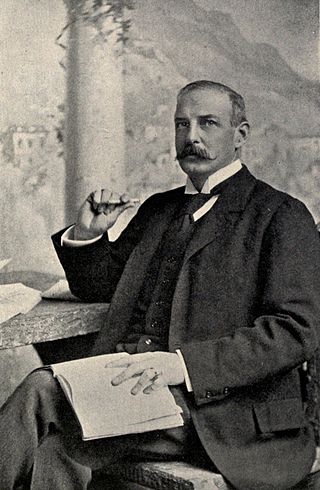
Francis Marion Crawford was an American writer noted for his many novels, especially those set in Italy, and for his classic weird and fantastical stories.

Henry Kingsley was an English novelist, brother of the better-known Charles Kingsley. He was an early exponent of muscular Christianity in an 1859 work, The Recollections of Geoffry Hamlyn.
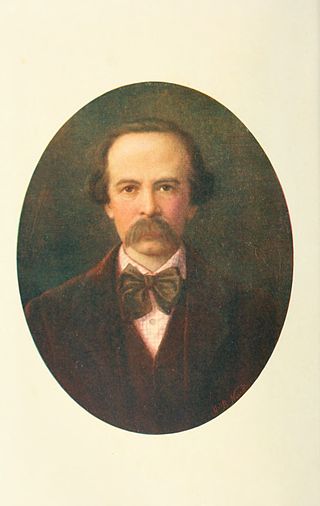
Theodore Watts-Dunton, from St Ives, Huntingdonshire, was an English poetry critic with major periodicals, and himself a poet. He is remembered particularly as the friend and minder of Algernon Charles Swinburne, whom he rescued from alcoholism and drug use and persuaded to continue writing.
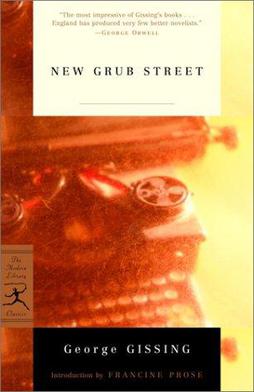
New Grub Street is a British novel by George Gissing published in 1891, which is set in the literary and journalistic circles of 1880s London. The story deals with the literary world that Gissing himself had experienced. Its title refers to the London street, Grub Street, which in the 18th century became synonymous with hack literature, although by Gissing's time, Grub Street itself no longer existed. Gissing revised and shortened the novel for a French edition of 1901.
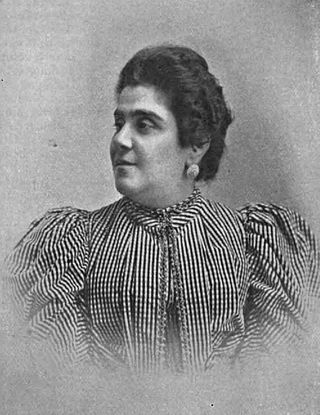
Matilde Serao was an Italian journalist and novelist. She was the first woman called to edit an Italian newspaper, Il Corriere di Roma and later Il Giorno. Serao was also the co-founder and editor of the newspaper Il Mattino, and the author of several novels. She never won the Nobel Prize in Literature despite being nominated on six occasions.
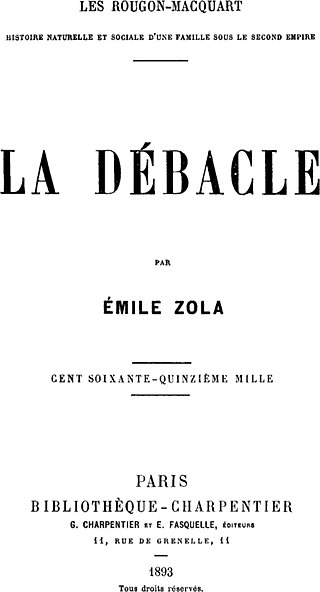
La Débâcle (1892), translated as The Debacle and The Downfall, is the penultimate novel of Émile Zola's Les Rougon-Macquart series, which first appeared as a serial in La Vie populaire from 21 February to 21 July 1892, before being published in book form by Charpentier.

Malwida von Meysenbug was a German writer, her work including Memoirs of an Idealist, the first volume of which she published anonymously in 1869. As well, she was a friend of Friedrich Nietzsche and Richard Wagner, and met the French writer Romain Rolland in Rome in 1890.
Eve's Ransom is a novel by George Gissing, first published in 1895 as a serialisation in the Illustrated London News. It features the story of a mechanical draughtsman named Maurice Hilliard, who comes into some money, which enables him to live without working. As part of his resulting travels, he meets and falls in love with Eve Madeley, a book keeper.
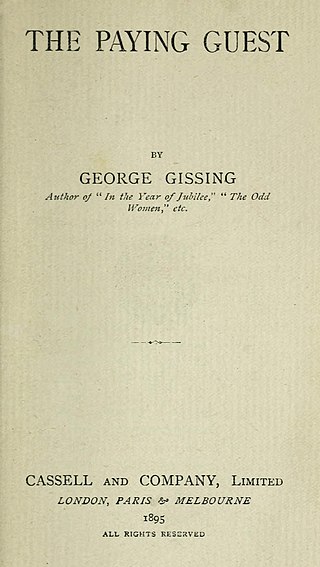
The Paying Guest is a satirical novella by George Gissing, first published in 1895 by Cassell, as part of their Pocket Library series. It recounts the experiences of the Mumfords, a middle-class family who invite a "paying guest" into their home to supplement their income. Written in an unusually comic tone compared with Gissing's earlier works, The Paying Guest was generally received well by critics. Gissing himself, however, was not satisfied with the work.
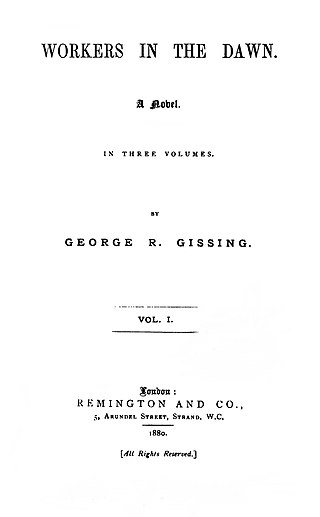
Workers in the Dawn is a novel by George Gissing, which was originally published in three volumes in 1880. It was the first of Gissing's published novels, although he had been working on another prior to this. The work focuses on the unhappy marriage of Arthur Golding, a rising artist from a poor background, and Carrie Mitchell, a prostitute. This plot was partly based on Gissing's negative experiences of marriage to his first wife. It also was designed to serve the function of political polemic, highlighting social issues that Gissing felt strongly about. Reviews of the novel generally recognised some potential in the author, but were critical of Workers in the Dawn. After reading the first known published review in the Athenaeum, Gissing was driven to describe critics as "unprincipled vagabonds".

David Christie Murray was an English journalist, who also wrote fiction.
The Gissing family of Great Britain included several noted writers, Olympic competitors, and teachers.

Charles Francis Keary was an English scholar and historian. His later work as a novelist influenced the modernist writer James Joyce. However, the English novelist George Gissing read four of Keary's works, including three novels, in the first 31 days of 1896, and found the novel Herbert Vanlennert, "a long, conscientious, uninspired book".

In the Year of Jubilee is the thirteenth novel by English author George Gissing. First published in 1894.

















